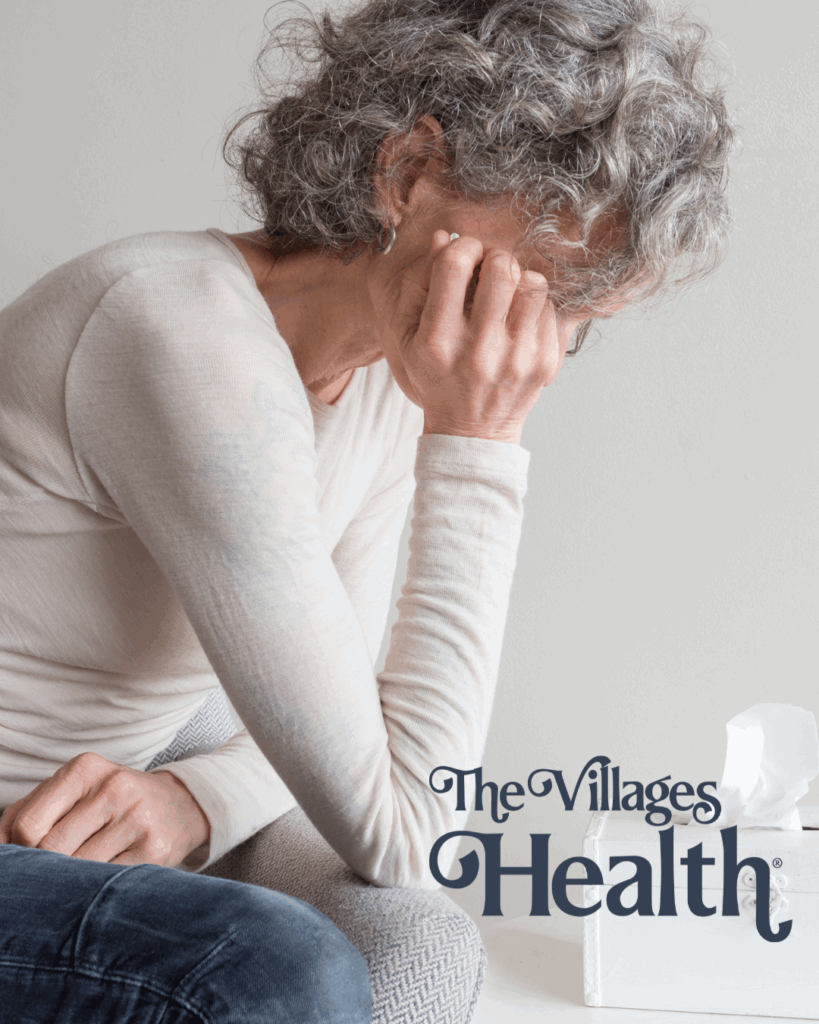Grief flows from many heartaches: the death of a loved one, the loss of a job, the end of a friendship or onset of a health setback. National Grief Awareness Day, observed annually on August 30th, provides a crucial opportunity to recognize the prevalence and impact of grief. In this conversation with Brooke Leever, psychologist with The Villages Health, we explore the multifaceted nature of grief and find practical ways to support ourselves and others as we journey through difficult experiences.
Q.
What are some common ways grief might manifest in our lives?
A.
Grief is a universal and deeply personal experience, and there are many ways it can manifest in us. Grief can appear as heightened stress responses, disturbances in sleep or appetite, irritability, tendencies to isolate, feeling more tearful, or even more easily angered.
Q.
What are some common misconceptions about grief you’ve encountered?
A.
The belief that grief happens on a timetable. Early grief (the phase that occurs after a loss) can be the first 1 or 2 years (at least a full cycle of seasons). Time does not necessarily heal; healing depends on how we use our time and what we allow for supporting our grief process.
Q.
How do we encourage someone who is grieving? Are the phrases, “Be strong” or “You’ll get over this,” appropriate?
A.
Too often we place the expectation on ourselves and others to “get over it” or “move on” — if only we had a magic wand to do so. This expectation can further complicate grief and wellbeing. It is reasonable to err of the side of assuming the person in grief has heard many variations of those messages. A more compassionate approach is to allow space for a person to feel heard, no matter what they are feeling, and to offer support.
Q.
How can we recognize grief in others and provide support without overstepping?
A.
Often many well-meaning people who want to help will say, let me know if you need anything. Trouble with this is that the person may not know what they need, and what they need may change from one time to the next. People tend to offer more support immediately following a death or tragic event, and that consideration tends to dwindle over time. It is not uncommon for individuals who are grieving to have need for support and a kind ear months after a loss. Having compassionate openness toward a person goes a long way.
Find additional resources here, or talk with your primary care provider about how behavioral health services may benefit you.
Brooke Leever, Ph.D., is Behavioral Health Tandem Care Clinician Credentialed.


